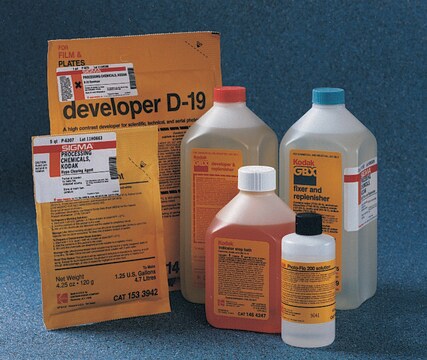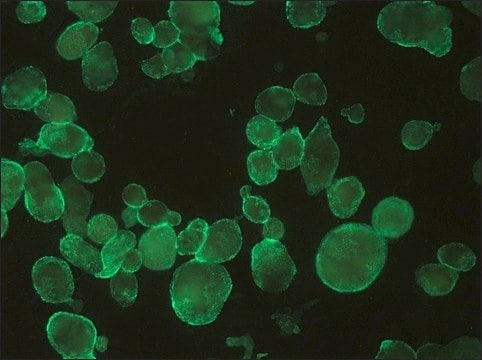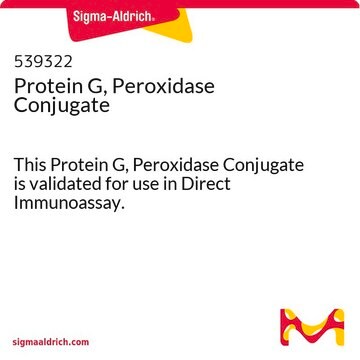AP127F
Goat Anti-Mouse IgG Antibody, Fc, FITC conjugate
Chemicon®, from goat
About This Item
Empfohlene Produkte
Biologische Quelle
goat
Qualitätsniveau
Konjugat
FITC conjugate
Antikörperform
F(ab′)2 fragment of affinity isolated antibody
Antikörper-Produkttyp
secondary antibodies
Klon
polyclonal
Speziesreaktivität
mouse
Hersteller/Markenname
Chemicon®
Methode(n)
immunofluorescence: suitable
Versandbedingung
wet ice
Posttranslationale Modifikation Target
unmodified
Verwandte Kategorien
Anwendung
Sekundär- & Kontrollantikörper
Fragmentspezifische Sekundärantikörper
Rechtliche Hinweise
Haftungsausschluss
Not finding the right product?
Try our Produkt-Auswahlhilfe.
H-Sätze
P-Sätze
Gefahreneinstufungen
Aquatic Chronic 3
Lagerklassenschlüssel
11 - Combustible Solids
WGK
WGK 3
Analysenzertifikate (COA)
Suchen Sie nach Analysenzertifikate (COA), indem Sie die Lot-/Chargennummer des Produkts eingeben. Lot- und Chargennummern sind auf dem Produktetikett hinter den Wörtern ‘Lot’ oder ‘Batch’ (Lot oder Charge) zu finden.
Besitzen Sie dieses Produkt bereits?
In der Dokumentenbibliothek finden Sie die Dokumentation zu den Produkten, die Sie kürzlich erworben haben.
Verwandter Inhalt
Step-by-step protocol for generating apical-out human gut organoids for microbiome, ADME/Tox, viral and gastrointestinal related disease research. See the complete organoid culture protocol.
Unser Team von Wissenschaftlern verfügt über Erfahrung in allen Forschungsbereichen einschließlich Life Science, Materialwissenschaften, chemischer Synthese, Chromatographie, Analytik und vielen mehr..
Setzen Sie sich mit dem technischen Dienst in Verbindung.








